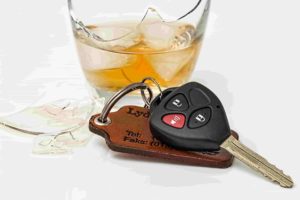 Many car accidents are just that: accidents. If someone gets behind the wheel while under the influence of drugs or alcohol, though, and a collision results, is it really an “accident?”
Many car accidents are just that: accidents. If someone gets behind the wheel while under the influence of drugs or alcohol, though, and a collision results, is it really an “accident?”
Drinking and driving on occasion may seem like a victimless crime, but the consequences of doing so rarely are. When people make the choice to drive while impaired, they are exhibiting a gross disregard for the motorists, cyclists, and pedestrians in traffic around them.
Unfortunately, the potential penalties for a DUI conviction—which vary from state to state but almost always include jail time—are not enough to deter some people from drinking and driving. Even individuals who have already been prosecuted and faced the consequences of doing so are likely to keep driving while impaired.
Up to 75 percent of motorists who have been convicted of DUI will continue to drive under the influence of alcohol, regardless of whether their license has been suspended or revoked. Should they cause a collision, they will face more than just the criminal penalties associated with a DUI conviction.
In an effort to deter people from operating a vehicle while impaired, most states grant drunk driving accident victims the right to recover punitive damages. Unlike compensatory damages, which aim to make the plaintiff feel whole again by reimbursing him or her for any losses associated with the crash, punitive damages intend to punish the defendant.
Every state that allows punitive damages in car accident claims has specific formulas for calculating a reasonable award. In general, though, the total amount is based on:
- The nature of the defendant’s conduct;
- The defendant’s driving record;
- The defendant’s net worth;
- The extent of the plaintiff’s losses; and
- How much damage the defendant might go on to cause if he or she continues behaving in such a reckless or negligent manner.
Is Drunk Driving the Only Scenario That Warrants Punitive Damages After a Car Accident?
In an effort to prevent frivolous lawsuits that are solely after punitive damages because there were no significant losses, every state limits the kinds of scenarios in which they may be awarded. When it comes to car accidents, for example, there are only a few situations that warrant punitive damages. As a general rule, claimants can seek such damages if the liable motorist exhibited:
- Gross negligence;
- Extreme recklessness;
- Intentional misconduct; or
- A willful disregard for the safety of others.
The precise statutes vary by state. Based on the above parameters, though, victims might be able to pursue punitive damages if the liable motorist was knowingly driving a vehicle with serious mechanical issues, like faulty brakes, or taking part in blatantly dangerous activities, like street racing; however, drunk driving remains the most common cause of car accidents that warrant punitive damages.
Some States Cap Punitive Damages
To prevent claimants from taking advantage of the situation and seeking an excessive amount in punitive damages, some states impose an upper limit on such awards. This cap can be a precise dollar amount or a percentage of the liable party’s net worth.
It can also correlate to the total compensatory award. For example, accident victims may be barred from recovering more than two or three times their compensatory award in punitive damages.
Although most car accident claims do not result in punitive damages, there are certain scenarios in which they are warranted. Whether your case will include both compensatory and punitive damages depends on a variety of factors including the state in which you live. For this reason, it is essential to turn to a local attorney who has considerable experience resolving claims similar to yours if you intend to pursue punitive damages.
